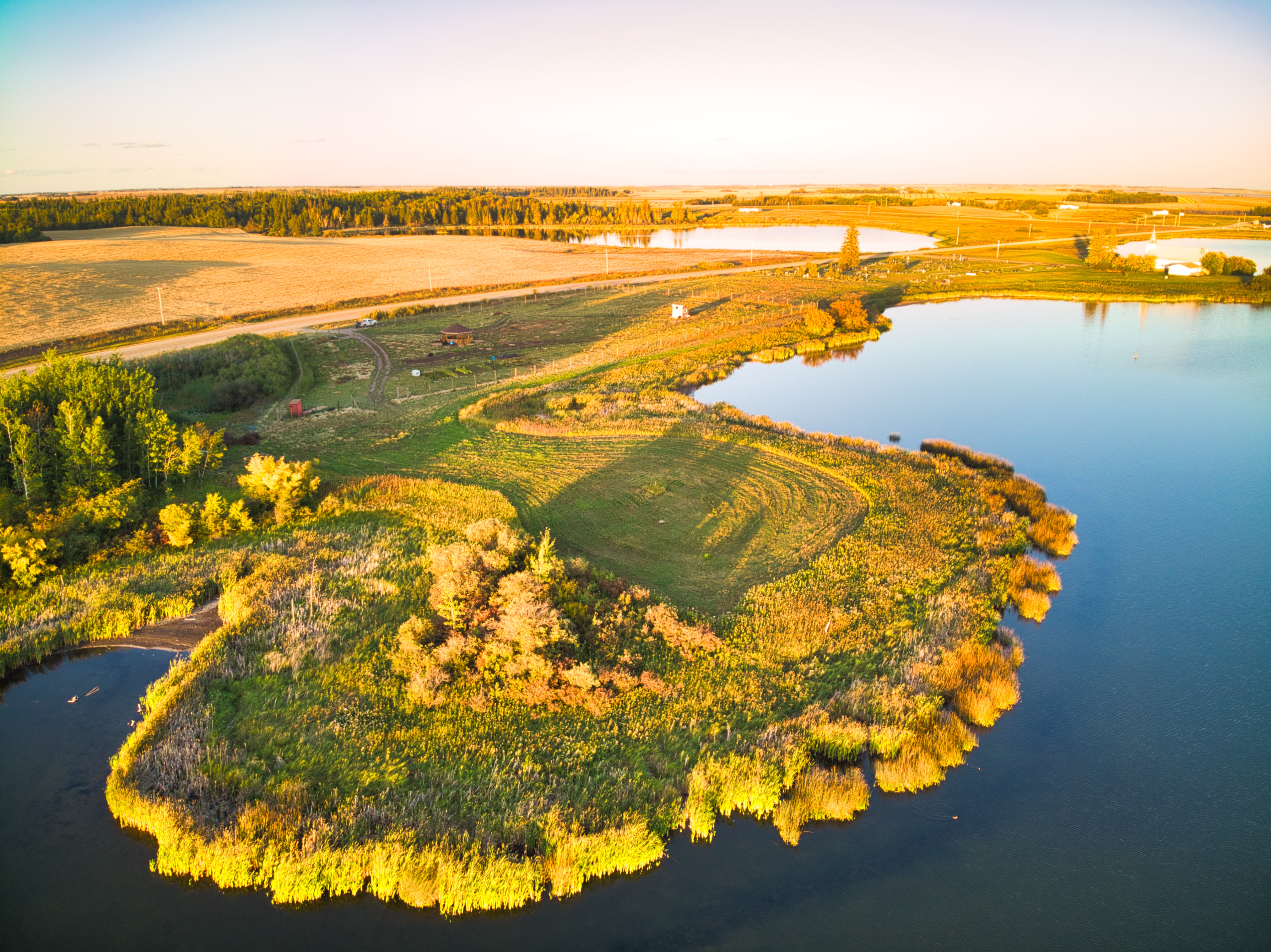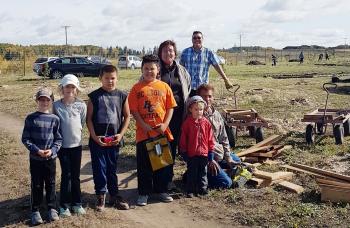Image Caption
Summary
Windspeaker.com Contributor
MUSKEG LAKE CREE NATION, Sask.

Members of Muskeg Lake Cree Nation in Saskatchewan continue to work on a project that is expected to become a sustainable food source for the community in a couple of years.
The venture, called the Food Forest, began in 2018 in partnership with Canadian Feed The Children, an organization that has joined f orced with 20 Indigenous communities across the country to assist with food initiatives. For more on Canadian Feed The Children visit their website here: https://canadianfeedthechildren.ca
“I think this is the first food source a First Nation is doing using the permaculture design,” said Glenna Cayen, a Muskeg Lake Cree Nation member who was hired by Canadian Feed The Children to serve as its community program co-ordinator.
Permaculture is an agricultural system that combines human assistance with natural surroundings to create a self-sustaining ecosystem.
Phase one of the Food Forest project began August 2018 when Muskeg Lake residents began preparing the land which was to be planted. The Food Forest, situated on 2.5 acres of land, is centrally located on the community’s main road.
After the land was prepared, work continued last October when about 300 items were planted, including apple, plum, and cherry trees, as well as Saskatoon berry.
Also, mountain ash trees were planted to attract birds, and birch trees were added to provide windbreak.
Indigenous school children from nearby communities assisted with this initial work.
Phase Two of the Food Forest began this past May when plenty more work was done. Items planted included gooseberries, cranberries, sea buckthorn, rhubarb, raspberries and grapes.
“In total, we’ve now planted about 1,000 plants,” Cayen said.
Phase two continued this past Saturday and Sunday.
The Food Forest and Equinox Workshop was held on the First Nation to give its members a better understanding of how to sustain the project during the winter months.
Those who attended then helped tend to the soil and prepare trees for the coming colder weather.
“We had about 20 people out each day,” Cayen said. “In this phase we’re still mulching, so there’s no rotting on the trees. And we were laying cardboard down. That’s how it’s done with permaculture.”
The Muskeg Lake Cree Nation has about 380 members that live in its community.
Cayen was content with the numbers that did show up to volunteer on the Food Forest this past weekend.
“We could have used more,” she said. “But it’s kind of hard to get everybody out. There were a lot of activities going on this weekend.”
Cayen said all members of the First Nation will eventually have free access to the food that will be produced in this project.
She believes two more summers of growth will be required for the First Nation to reap the rewards of its labour.
But some signs of the progress taking place are evident now.
“We already have golf-ball size apples on some of the trees planted last October,” Cayen said. “And the grapes and gooseberries planted this year already have some little berries.”
Cayen said there is solid backing for the initiative in the community.
“There is really good support from the chief and council on this,” she said.
And more and more Muskeg Lake members are starting to take notice of the venture, which is expected to provide healthy and fresh food for many years to come.
“It’s centrally located so they see the activities we’ve been doing,” she said. “I think it’s starting to gain some momentum and more interest.”
Cayen said it won’t be just Muskeg Lake members who will be able to take advantage of the food that will be produced on the First Nation.
“We can probably do market gardens,” she said. “And I’m really big on nation-to-nation building or trading. We’re going to have a lot of apples. So, if somebody else has maybe a lot of potatoes, we can trade with them.”
Though the Food Forest is expected to start producing food by 2021, those working on the project still have plenty of work ahead.
“Permaculture is all about layers,” Cayan said. “We have to plant other shrubs and trees.”
Cayen added Muskeg Lake officials also need to come up with a storage plan, including whether to have some sort of cellar or cannery for their various food products.
Goals in 2020 also include building a children’s playspace area at the Food Forest.
“That will hopefully be part of Phase Three,” Cayan said, adding the goal is to have a natural (wooden) playground, including swings, teeter totters and possibly a sand box built in the shape of a tipi.

